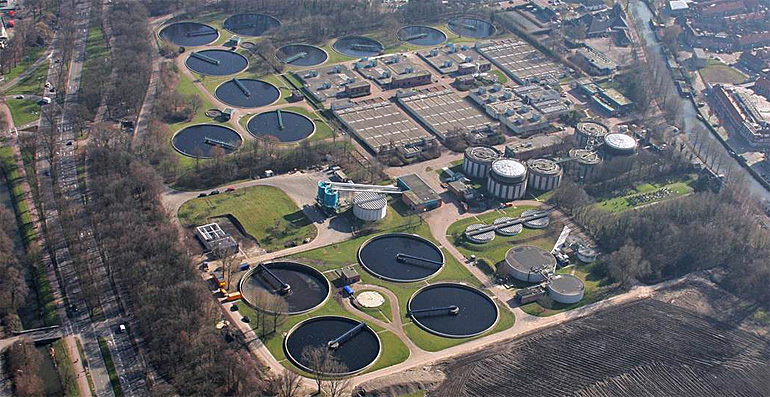Navigating The Crisis: Airlines Adapt To Volatile Oil Prices

Table of Contents
Hedging Strategies: Mitigating Risk in a Volatile Market
Airlines utilize various hedging techniques to protect themselves from unpredictable price swings. This involves purchasing fuel contracts in advance at fixed prices or using derivatives to lock in future fuel costs. Effective hedging against volatile oil prices is crucial for financial stability.
- Forward contracts: Securing fuel at a predetermined price for a specific period. This offers predictability but requires accurate market forecasting.
- Options contracts: Providing the right, but not the obligation, to buy fuel at a set price. This offers flexibility to react to changing market conditions.
- Futures contracts: Agreements to buy or sell fuel at a future date at a specified price. These are standardized contracts traded on exchanges.
- Swap agreements: Exchanging fixed-rate payments for floating-rate payments linked to oil prices. This helps manage exposure to price fluctuations.
The effectiveness of hedging strategies depends on market forecasting accuracy and the complexity of the chosen instruments. Miscalculations can result in significant losses. Airlines often employ specialized financial teams to manage these complex hedging strategies and mitigate risk associated with fuel price volatility.
Operational Efficiency: Reducing Fuel Consumption and Costs
Airlines are continuously seeking ways to optimize their operations to reduce fuel consumption and ultimately, their overall expenditure. Improving operational efficiency is a key response to volatile oil prices.
- Implementing fuel-efficient flight routes: Optimizing routes to minimize distance and fuel burn. This includes using advanced route-planning software and considering weather patterns.
- Investing in new aircraft technologies: Utilizing modern, fuel-efficient aircraft with advanced aerodynamics. Newer planes often boast significantly improved fuel efficiency compared to older models.
- Implementing weight reduction programs: Removing unnecessary weight from aircraft to improve fuel efficiency. This can involve careful cargo management and lighter-weight materials.
- Employing advanced flight management systems: Using technology to optimize flight paths and reduce fuel waste. This includes systems that predict and adapt to changing weather conditions.
These measures not only lessen the impact of volatile oil prices but also contribute to environmental sustainability, making them attractive for airlines committed to reducing their carbon footprint.
Pricing Strategies: Passing on Costs or Absorbing the Shock
Airlines must carefully consider how to respond to fluctuating fuel costs through their pricing strategies. Balancing consumer affordability with profitability in the face of volatile oil prices is a significant challenge.
- Dynamic pricing models: Adjusting ticket prices based on real-time demand and fuel costs. This allows airlines to respond quickly to changing market conditions.
- Fuel surcharges: Implementing additional fees to directly offset rising fuel prices. This is a transparent method of passing costs onto consumers.
- Ancillary revenue generation: Increasing revenue from non-ticket sources like baggage fees and in-flight services. This helps diversify revenue streams and reduce reliance on ticket sales.
- Route optimization based on profitability: Focusing on high-demand routes to maximize revenue and mitigate fuel cost impacts. This ensures that resources are allocated to the most profitable routes.
The balance between passing costs onto consumers and maintaining competitiveness is a crucial factor in the decision-making process. Airlines must carefully analyze market sensitivity to price changes.
Government Support and Regulations: Navigating External Influences
Governmental policies and regulations play a significant role in shaping the airline industry's response to volatile oil prices. Government intervention can significantly affect an airline's ability to manage fuel costs.
- Fuel tax adjustments: Governments may adjust fuel taxes to ease the burden on airlines during periods of high prices. This can provide crucial relief during times of crisis.
- Subsidies and bailouts: In extreme cases, governments might provide financial assistance to prevent industry collapse. This is usually a last resort measure during major economic downturns.
- Environmental regulations: Stricter environmental regulations can lead to higher operational costs, impacting the industry's response to volatile oil prices. Compliance with environmental standards is a growing expense for airlines.
The level of government intervention varies greatly depending on the country and the severity of the crisis. The political landscape can significantly influence how airlines manage the impact of fuel price instability.
Conclusion
The impact of volatile oil prices on the airline industry is undeniable. Airlines are actively employing a multi-pronged approach, encompassing hedging, operational efficiency improvements, strategic pricing adjustments, and navigating external influences, to mitigate the risks associated with volatile oil prices. By understanding these adaptation strategies, we can better grasp the resilience and adaptability of this crucial sector. To stay informed about the latest developments in the industry's response to fluctuating fuel costs, continue researching the impact of volatile oil prices on airline operations and strategies.

Featured Posts
-
 The Rising Costs Of Offshore Wind Impact On Energy Companies
May 04, 2025
The Rising Costs Of Offshore Wind Impact On Energy Companies
May 04, 2025 -
 Nigel Farages Reform Uk Faces Split Ex Deputy Hints At New Party
May 04, 2025
Nigel Farages Reform Uk Faces Split Ex Deputy Hints At New Party
May 04, 2025 -
 Nigel Farage Press Conference My Eyewitness Account
May 04, 2025
Nigel Farage Press Conference My Eyewitness Account
May 04, 2025 -
 Largest Heat Pump In The Netherlands Launched At Utrecht Wastewater Plant
May 04, 2025
Largest Heat Pump In The Netherlands Launched At Utrecht Wastewater Plant
May 04, 2025 -
 Building Voice Assistants Made Easy Open Ais 2024 Developer Announcement
May 04, 2025
Building Voice Assistants Made Easy Open Ais 2024 Developer Announcement
May 04, 2025
Latest Posts
-
 Analyzing The Results Of Singapores Recent General Election
May 04, 2025
Analyzing The Results Of Singapores Recent General Election
May 04, 2025 -
 Bookstores Unexpected Discovery A 45 000 Rare Novel
May 04, 2025
Bookstores Unexpected Discovery A 45 000 Rare Novel
May 04, 2025 -
 Singapores Ruling Party Faces Its Toughest Election Yet
May 04, 2025
Singapores Ruling Party Faces Its Toughest Election Yet
May 04, 2025 -
 Hidden Treasure Bookstore Finds 45 000 Rare Novel
May 04, 2025
Hidden Treasure Bookstore Finds 45 000 Rare Novel
May 04, 2025 -
 Singapores Political Landscape Can The Opposition Gain Ground
May 04, 2025
Singapores Political Landscape Can The Opposition Gain Ground
May 04, 2025
